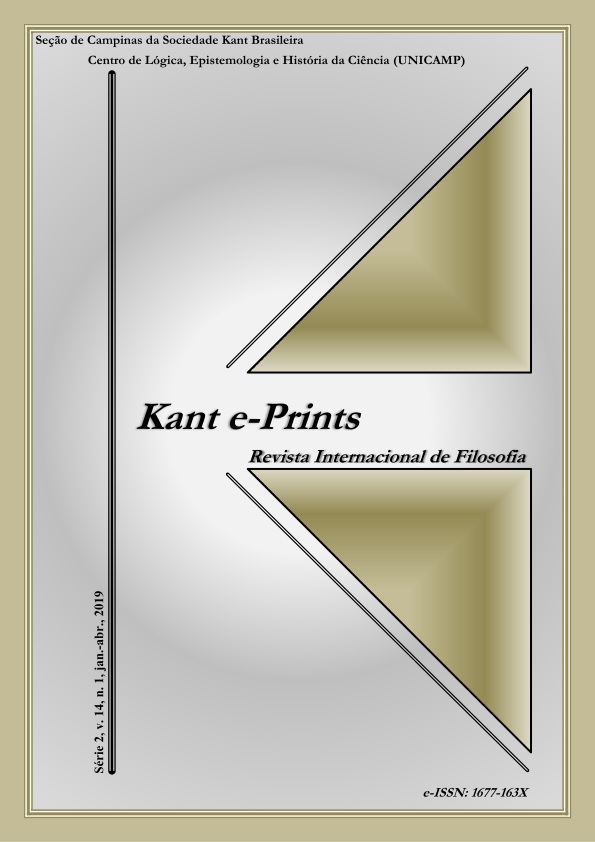Resumo
The aim of this paper is to present a novel reading of Kantian idealism. In want of a better name, I call my interpretation “one-object-plus-epistemic phenomenalism”. I partially endorse Allison’s celebrated position, namely his rejection of metaphysical world-dualism. Yet, I reject Allison’s deflationary two-aspect view. I argue that Kantian idealism is also metaphysically committed to an ontological noumenalism (one-object), namely the claim that the ultimate nature of reality is made up of unknown things in themselves (substantia noumena). Natural sciences can only reveal the relational/structural properties of things as they appear rather than the intrinsic properties of substantia noumena in the negative sense. My anti-deflationary reading is similar to Allais’s and my agnostic monism to Hanna’s. However, against both, I hold that appearances are not the accusative objects of our sensible representations, but rather as Kant repeatedly states: “mere representations”. The accusative objects of our senses are substantia noumena in the negative sense. Moreover, my view is also similar to Langton’s. Again, against Langton I hold that appearances are not merely relational properties of substantia noumena, but the way that such substantia noumena exist inside our mind as “mere representations”. In this regard, I also partially endorse Guyer’s and Van Cleve’s phenomenalist reading because these substantia noumena in the negative sense can only be cognized mind-dependently, namely as appearances. However, against Guyer and Van Cleve I hold that the phenomenalist side of Kantian idealism is purely epistemological rather than ontological: what Kant calls the necessary unity of representations according to categories is not a logical construction of objects out of representations, that is, an ontological reduction of noumena to appearances, but rather the way we sense-independently cognize mind-independent noumena.
Desde 2022, todo o conteúdo publicado pela Kant e-Prints está sob a licença Creative Commons Atribuição 4.0 Internacional (CC BY 4.0).

